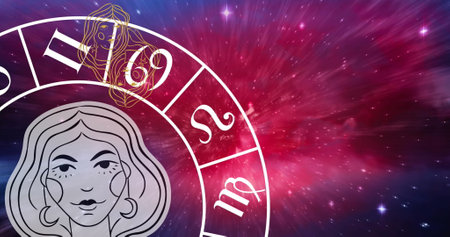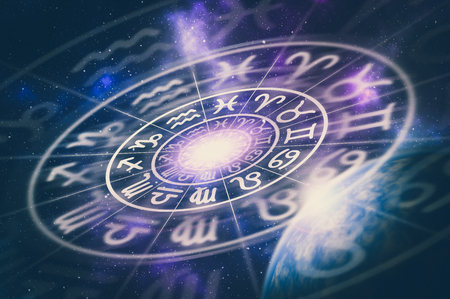Introduction: The British Fascination with Mysticism
Across the winding lanes of the British Isles, from misty moorlands to bustling cities, there’s a persistent and uniquely British enchantment with the mystical. It’s not just the stuff of Arthurian legend or Victorian parlour games—astrology and numerology have woven themselves into the fabric of everyday life. Over the centuries, Britons have found comfort, guidance, and even entertainment in the stars and numbers that promise to unlock hidden meanings. This enduring love affair is more than a passing fad; it’s rooted in centuries-old traditions, shaped by folklore, royal intrigue, and philosophical exploration. From Elizabethan astrologers advising monarchs to today’s horoscope columns in every major newspaper, the UK has long been a fertile ground for combining astrology and numerology. Understanding this context is key to appreciating how these practices continue to resonate with British sensibilities, blending rational curiosity with an appetite for wonder.
Astrology in Britain: Stars, Signs, and Scepticism
Astrology in Britain is a cultural paradox: it’s both quietly embedded in daily life and openly challenged by sceptics. The British approach to astrology is marked by a blend of curiosity, humour, and critical thinking—a combination that shapes how astrological beliefs are expressed and received. From the glossy pages of popular magazines to the casual banter at the local pub, horoscopes and star signs have carved out an unmistakable niche in British society.
In the media, astrology columns are a longstanding fixture. National newspapers like The Sun and The Daily Mail feature daily or weekly horoscopes, while prominent astrologers such as Russell Grant and Mystic Meg have become household names. These sections are often consumed with a pinch of salt—Brits enjoy reading them for entertainment as much as for guidance. This light-hearted engagement coexists with genuine interest; many Britons know their star sign and might even reference it when explaining quirks or life events.
Yet, this fascination is balanced by characteristic British scepticism. The UK has a robust tradition of scientific inquiry and rationalism, which means astrology is frequently met with wit or outright dismissal in more academic or professional circles. Public figures may joke about Mercury retrograde, but rarely will you see serious policy debates influenced by planetary movements.
Astrology’s Touchpoints in British Culture
| Aspect | Expression in Britain |
|---|---|
| Media Presence | Regular newspaper/magazine columns; TV/radio segments with astrologers |
| Social Life | Pubs, parties, dating apps—casual references to star signs as conversation starters |
| Popular Attitude | A mix of playful belief, mild curiosity, and healthy scepticism |
| Stereotypes | Tongue-in-cheek jokes about “typical” Geminis or Capricorns |
This interplay between engagement and scepticism creates a uniquely British take on astrology: open-minded enough to let it colour everyday life, yet grounded enough to never let it take over. As we explore how numerology fits into this context—and how the two can be combined—understanding this nuanced relationship is key.

3. Numerology: From Pythagoras to the High Street
Numerology, with its beguiling blend of mathematics and mysticism, traces its roots back to ancient civilisations, most notably the Greeks. Pythagoras, that legendary figure whose theorem haunted many a British schoolchild, saw numbers as the fundamental building blocks of reality—a notion that quietly echoes through centuries of British philosophical thought. Yet, numerology’s journey from dusty scrolls to the heart of modern British culture is as winding as a Cotswolds lane.
By the Victorian era, curiosity about spiritualism swept across Britain, and numerology found itself entwined with séances in candlelit drawing rooms and the pages of esoteric magazines sold at railway kiosks. Numbers took on new significance—not just for mathematicians or clergymen, but for ordinary Britons seeking meaning beyond the church pew or the factory floor.
Fast forward to today, and numerology has re-emerged on the British high street, albeit in a fresh guise. Boutique wellness shops in Soho or Brighton might offer personalised numerology charts alongside crystal-infused teas and yoga classes. Social media influencers—armed with TikTok tutorials and Instagram reels—translate ancient number lore into digestible daily mantras or stylish home décor trends. For many Brits, calculating one’s “life path number” now sits comfortably beside checking one’s star sign in a glossy magazine.
This contemporary embrace is less about rigid belief and more about playful self-discovery; it’s not uncommon to overhear discussions about “lucky numbers” at a London brunch table or see numerological motifs woven into artisanal jewellery at Camden Market. The old-world gravitas of Pythagoras mingles with a very modern British scepticism and wit—numerology here is both a nod to tradition and an accessory of personal expression.
4. Synergies and Contrasts: Blending the Two Arts
When considering the blend of astrology and numerology from a British standpoint, it’s fascinating to observe both the synergies and contradictions that emerge. While each discipline has its roots in ancient traditions, their convergence offers a multidimensional toolkit for those keen on deciphering life’s complexities. British practitioners often highlight how astrology’s planetary influences can dovetail with numerological vibrations, creating a richer tapestry of personal insight. For example, one’s Sun sign may reflect overarching personality traits, whereas their Life Path number might reveal more nuanced themes around purpose and motivation. However, these tools do not always align seamlessly; there are occasions where astrological predictions and numerological guidance point in different directions, prompting healthy debate within the UK’s esoteric circles.
| Aspect | Astrology | Numerology |
|---|---|---|
| Focus | Planetary positions & transits | Numbers derived from birth date & name |
| Interpretation Style | Symbolic, archetypal | Mathematical, vibrational |
| Main Application in Britain | Natal charts for self-understanding | Life Path analysis for career & relationships |
Among British enthusiasts, there is an appreciation for the added nuance gained by overlaying these systems. Some practitioners even create bespoke reports weaving both arts together—offering clients unique perspectives that may resonate more deeply than either system alone. Yet, this blending can sometimes lead to tension: what if your astrological forecast suggests a period of introspection while your numerology indicates bold action? Such contrasts invite thoughtful reflection and discussion—a hallmark of the UK’s open-minded metaphysical community. Ultimately, it is the dialogue between these two arts that stirs curiosity and fosters innovation among British seekers.
5. Practical Applications: Everyday British Contexts
Across the UK, the marriage of astrology and numerology has found its way into daily routines, blending tradition with modernity in unmistakably British ways. For example, many Londoners start their mornings by checking both their star sign predictions and numerological day numbers on apps or in newspapers before heading out – a quick ritual for framing their mindset as they navigate the city’s hustle. In Manchester, some entrepreneurs use birth charts and personal numerology to choose auspicious dates for launching new ventures, believing this fusion maximises luck and success. Meanwhile, in Scotland, friends gather in cosy pubs or living rooms for ‘astro-numero’ nights, where they swap stories about how certain number patterns or planetary shifts have influenced key life choices – from picking house numbers to deciding when to take a holiday. Students in university towns like Oxford and Cambridge sometimes consult both systems before big exams or job interviews, using them for self-reflection or a bit of light-hearted reassurance. Even popular British entertainment reflects this blend; TV quiz shows and radio segments occasionally invite astrologers and numerologists to offer live readings, sparking playful debates among listeners about fate versus free will. Ultimately, whether for decision-making, self-discovery, or sheer amusement, the British approach to combining astrology and numerology is grounded in relatable, everyday scenarios that bridge the mystical with the practical.
6. Critical Perspectives: Media, Science, and the British Public
When it comes to combining astrology and numerology, British society is renowned for its healthy dose of scepticism. The British media often presents these esoteric practices with a touch of irony or even outright cynicism, frequently relegating them to the lifestyle or entertainment sections rather than treating them as serious fields of inquiry. Popular television shows might poke gentle fun at horoscopes, while newspapers publish them alongside crossword puzzles—a telling sign of their perceived credibility.
From an academic standpoint, universities across the UK tend to view astrology and numerology as pseudosciences. Scholars regularly critique both systems for their lack of empirical evidence and replicable results, reinforcing a narrative that values scientific rigour above mystical interpretation. This critical stance is echoed by scientific institutions like the Royal Society, which maintain a clear boundary between science and superstition.
However, public opinion in Britain is far from monolithic. While many Britons approach astrology and numerology with characteristic wit and irony, there remains a notable segment of the population that finds personal meaning or comfort in these traditions. Social media has amplified diverse voices, allowing proponents to share experiences and interpretations outside mainstream scepticism. At the same time, online forums often host spirited debates between believers and critics, reflecting the classic British fondness for robust discussion.
Ultimately, how astrology and numerology are represented—and received—in the UK says as much about national attitudes towards tradition, modernity, and belief as it does about the practices themselves. The interplay between media portrayal, academic scrutiny, and public sentiment ensures that these ancient arts continue to provoke conversation across the country.
7. Conclusion: The Future of Mystical Hybridity in the UK
As we look ahead, the intertwining of astrology and numerology within the British context is poised for further transformation, mirroring broader shifts in culture and identity. The UK’s historical tapestry—rich with folklore, innovation, and a penchant for both tradition and reinvention—offers fertile ground for such mystical hybridity to flourish. Today’s Britons, ever curious and open-minded, are increasingly blending these esoteric systems not just as a means of personal insight but as expressions of individuality and community.
In an era shaped by globalisation yet anchored by local identity, the fusion of astrology’s celestial wisdom with numerology’s mathematical symbolism resonates with those seeking meaning in uncertain times. We see this reflected in contemporary British media, from podcasts to pop culture references, where horoscopes and lucky numbers are discussed alongside discussions about heritage and self-discovery. Moreover, the accessibility of digital tools has empowered individuals across the UK—from London’s creative hubs to rural communities in Cornwall or the Highlands—to experiment with and personalise these traditions.
This evolving landscape suggests that mystical hybridity will not only persist but diversify. Younger generations, in particular, are likely to reinterpret old wisdom through a modern lens—perhaps combining star signs with postcode numerology or using these systems for everything from team-building exercises to artistic expression. The British knack for irony and playful scepticism also ensures that this fusion remains refreshingly unpretentious, keeping it grounded in everyday life rather than shrouded in exclusivity.
Ultimately, the future of astrology-numerology fusion in the UK will reflect the nation’s complex relationship with its past and its appetite for new ideas. As boundaries between disciplines—and indeed between science and spirituality—continue to blur, Britain’s distinctive blend of pragmatism and imagination will drive this mystical evolution forward. Whether used for introspection, creativity, or simply conversation over a cuppa, this hybrid approach is set to remain a meaningful thread within Britain’s ever-evolving cultural fabric.


